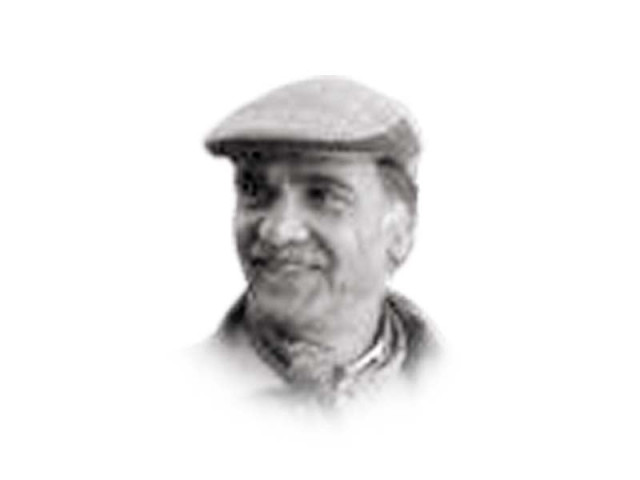How the last two years have changed me
Despite the fact that none of these major events came as a shock or a surprise, I do find myself changed.

As we move into the first weeks of the New Year, I have been thinking which of the big events of the last couple of years fundamentally changed how I perceive the world.
The Covid pandemic was clearly a top candidate. As it carried on into its third year, it underlined our tenuous existence on the planet. It showed us the vulnerability of the social and economic structures we have so laboriously built, and how easily we could be overwhelmed by the forces of Nature.
But scientists have been warning us for decades of catastrophes that could result from our blundering way of life on the planet. We have all heard, or read, about zoonotic diseases and about disease resistant bacteria; and history is replete with examples of how disease had brought down previous civilisations and empires. In addition, there are dozens of books, documentaries and films that have helped understand, highlight or dramatise the dangers we live with.
And while it is true that most of us, me included, never thought we would see a pandemic at this scale and of this duration, we were forewarned. Maybe the experience has made me more respectful of nature and a bit more sensitive to warnings by scientists, including on climate change.
But did the pandemic change how I see the world? Not in any significant way!
Another major development over the course of last two years was the growing level of international tension. Trade related squabbles, provocative military actions and powerful leaders in countries such as China, Russia and Turkey who are bent on changing the US-dominated world order, have substantially increased the possibility of war.
It is true that my generation has seen wars — in Afghanistan, Bosnia, Iraq, Syria and Vietnam, to name just a few. But these have been relatively small and local affairs compared to what we might see — particularly in terms of death and destruction — if two or three nuclear superpowers were to go to war.
But wars have always been part of human history. So, has the heightened possibility of war changed how I see the world? Once again the answer is: not in any significant way!
Yet another candidate for bringing about a rethink relates to the ever-growing indifference of the rich towards the poor. At international level, the rich countries continued to pollute the planet and plunder its resources. Much-hyped events such as COP26 did not result in any real course-correction. In poor countries, rich and powerful elites continue to obstruct change and reform. The big pharmaceutical companies, who were given billions of public funds to find a vaccine for Covid-19 posted record profits but refused to share their formulas which would have reduced costs and made it easier to vaccinate people in developing countries.
Was any of this a surprise? Not really. Income and wealth inequality within both rich and poor countries has been rising for decades. The rich continue to grow richer and the gap with the poor increases. And was this all this a surprise? Certainly not!
My final candidate for a rethink was the sharp deterioration in the level and tone of political and social discourse. An increasing number of mainstream leaders and politicians across the globe have been chasing popularity among the disgruntled and marginalised sections of the population by feeding them false narratives. Such false narratives include blaming immigrants, ethnic or religious minorities, globalisation, the Davos Elites and the godlessness of current society. For me it was disconcerting to see the President of the USA contesting the legitimacy of elections; disconcerting to see the No-Vax protesters being implicitly or explicitly supported by politicians in the name of liberty; and the prime minister of the world’s biggest democracy promoting supremacist policies.
But again, I am not surprised or shocked.
Over my lifetime I have seen so many leaders and politicians promote hate and unleash violence. I have seen it in Pakistan; I have seen it in some of our neighbouring countries; and I have seen in relatively rich countries. And I am no longer shocked when I see a Nobel Prize winner keep silent while genocide is committed in her country, when migrants and refugees are used as pawns in political power play, and countries fall apart as powerful warlords go on the rampage.
Despite the fact that none of these major events of the past two years came as a shock or a surprise, I do find myself changed. Maybe it was the fact that many of these big events came together within such a short time, and have left a cumulative impact on me. Or, maybe I have changed due to the two years of very limited travelling, two years of not meeting with friends or family in big noisy groups, and two years of wearing masks and not being able to see someone smile.
It is not easy to even articulate how I have changed but I am no longer the inveterate optimist that I once was. I no longer believe that there are deep self-correcting social and political forces that will help steer us away from disasters; I no longer believe that our leaders and politicians are working hard to build just, peaceful and prosperous societies; and I no longer believe that we can continue with impunity our arrogant pas-a-deux with nature.
I strongly, strongly hope that I am wrong and I can once again become the ‘irrational optimist’ I always was.
Published in The Express Tribune, February 1st, 2022.
Like Opinion & Editorial on Facebook, follow @ETOpEd on Twitter to receive all updates on all our daily pieces.















COMMENTS
Comments are moderated and generally will be posted if they are on-topic and not abusive.
For more information, please see our Comments FAQ